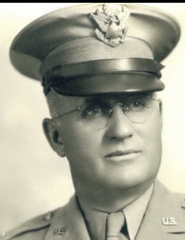Sufferings of Greeks Under Nazis Told
By FRANK MILES
(Iowa Daily Press War Correspondent)
Athens, Greece (IDPA) - A can of Dubuque pork luncheon meat for sale on a street stand here, priced at $1,500,000,000!
In 1925 the Greek drachma was worth 25 cents in American money. From then until Italy attacked Greece in 1940 it fell to 3/4 of a cent. When the Germans left Greece terrific inflation hit the country. Quick stabilizing action by the British government probably prevented panic with accompanying bloodshed. The old drachma was still in circulation when I was there.
Studying conditions in the ancient, picturesque city, I spotted, among many articles a native dealer was trying to sell a yellow can of the well known Hawkeye food with 'Dubuque Pork Luncheon Meat, Dubuque, Iowa" painted on it in black letters.
"How much?" I inquired.
"Four (British) shillings, 120 'new drachmas'" was the reply.
That's when the thought struck me that if the old drachma were worth what it once was the Dubuque manufacturers would need only one can of their product to retire.
A can of sliced bacon near the Dubuque cam was priced at 12 shillings, 360 new drachmas, and 18 billion old drachmas. A shilling is roughly the equivalent of 20 cents.
In the Athens city market place canaries and sparrows were offered for food at 4 million old drachmas apiece; an anemic, live old hen for 6 billion; one egg a billion; two loaves of bread three billion, 200 million; three pounds of onions, one billion, 400 million, and other things at like figures.
That day I bought one trillion old drachmas for a shilling from a clerk at the Grande Bretagne hotel, where I was billeted while on assignment with the British army there. He said he could get more for them from some purchases but that he was always eager to favor Americans.
The Greeks, though sorely hurt by the war, are on the whole supremely happy over their liberation from the nazis who made life hell for all save traitors. Buildings and streets in Athens were not damaged much but the enemy burned 2,200 Greek towns and created a food situation which cost the lives of thousands of people. Hundreds of Athens citizens fell in death or helpless weakness on the streets from hunger. Many victims still alive were thrown with dead bodies into nazi vehicles out to open spaces and dumped.
Thousands of younger women and girls were raped; thousands of men were beaten; thousands of children were booted by enemy soldiers. Disable Greek veterans of battles with the Italians were ejected from hospitals to make places for nazis
Hundreds of homes were cleared residents to let Germans move into them.
One day I stood in front of a bullet marked wall at the end of a garage, where condemned Greeks had been forces to stand before nazi firing squads. In an adjoining building were rooms with hooks on blood stained walls which had been used in tying victims for torture. On many of the walls all over the structure of what was once SS headquarters were pitiful tragic farewell messages written by Greeks about to be executed.
The same day I was in Haedare prison of 20 buildings, where spots of blood even on ceilings told grim, sickening tales of whippings with wire tipped lashes. Back on one was the nazi killing ground and near it were graves so shallow human bones had worked trough the dirt in recent rains.
I talked with a number of persons, some of whom had lived in American and whose truthfulness thoroughly was established who told shocking stories of nazi cruelty.
I saw a six-year old boy with his face hideously disfigured from a vicious nazi kick for getting "too close" to a squad of marching invaders.
Source: Mason City Globe-Gazette, December 27, 1944
![]()

